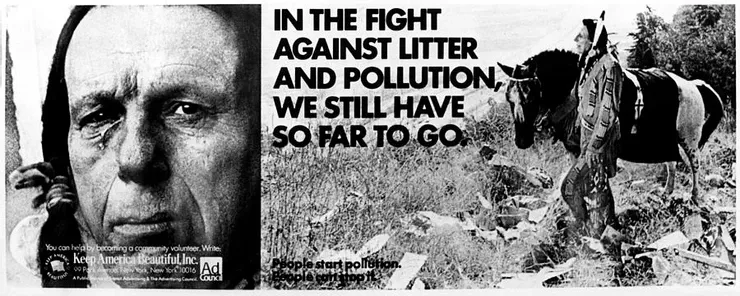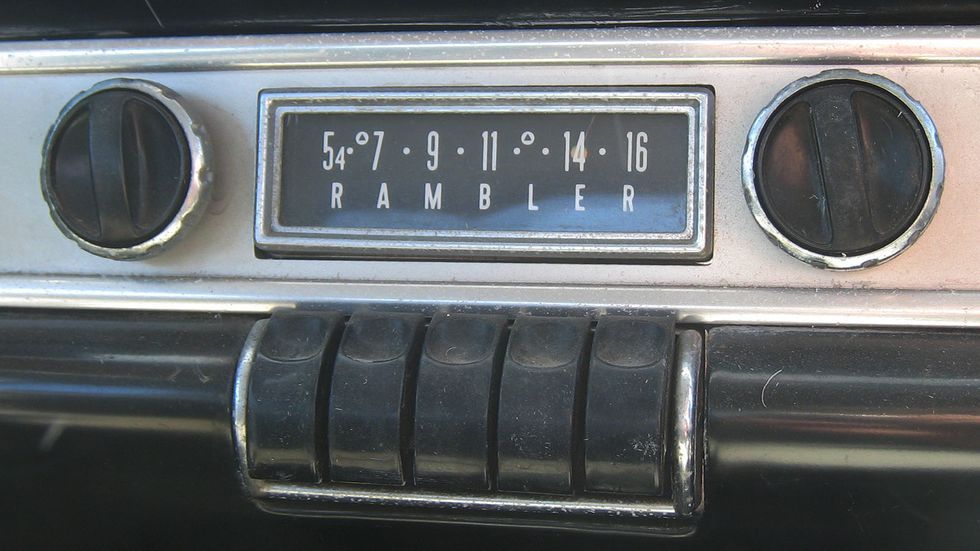Our Polluted Tears
April 22, 2021
The advertisement made its debut in early 1971, accompanied by billboards and print ads. It was crowned with Clios and is considered one of the best commercials of all time and became known simply as “The Crying Indian.”
Although the message still applies, the advertisement, if it premiered today, would be trashed and discarded.
The actor, Iron Eyes Cody, known for his portrayal of Native Americans in film and television, was not a Native American. Cody's given name was Espera Oscar de Corti. Although he dressed in Native American clothing off-screen to give the impression he was a native, he was born in Louisiana to Italian parents.
The narrator of the advertisement was William Conrad. Conrad was a radio, film, and television actor, producer, and director. He had starring roles in two hit television series. The 1970's Cannon, in which he portrayed a private investigator of some girth who made light of his weight, but was criticized for it by other characters, and the late 80s and early 90s, Jake and the Fatman. Conrad's character was the second-billed, another man of some girth, only this time a former prosecutor partnered with an investigator.
The sponsor for the advertisement, Keep America Beautiful, was not a small army of environmentalists fighting to save the planet from destruction, but a collective of beverage and packaging corporations who, in other forums, fought against environmental initiatives.
If viewed through a 2021 lens focused on social injustices, this advertisement would bring at least one, if not more, tears to woke eyes.
First of all, any reference to “Indian” would stop the advertisement in its tracks. The producers would have to rename it to ease any sensitivities. Possibly calling it "The Washington Commercial,” “Cleveland Criers,” or maybe even “The Crying They.”
Espara’s, aka Cody's participation, would never occur. A Native American could not be portrayed by an Italian American, regardless of costume and physical characteristics. The role would have to go to someone of Native American heritage. If he ever could find work again, Cody might portray an explorer who pretends to discover a New World but instead enslaves it.
William Conrad’s acting resume would bar him from lending his voice to anything but a public apology for his profiting from body shaming. The man who allegedly responded to a request to lunch with the head of Weight Watchers by saying, “Sure, if I can pick the restaurant,” might join the program, or at the very least unite with its leader and join a parade of curvy people protesting their Hollywood portrayal.
Activists would unmask the corporations behind the campaign and launch boycotts across social media platforms. Their CEOs forced to testify before Congress.
Earth Day is fifty years old, and this advertisement fifty. Half a century later, although cleaner, the earth and its inhabitants are still threatened by contamination. The air, land, and sea polluted by waste. And our personal interactions polluted by a growing inability to pull together and combat this real threat to our existence. Instead, we relish finding ways to trash each other and foul different views and opinions.
Masquerading as a people or nationality to get work is wrong. We need to have a reasonable discussion around using the word “Indian” and how we depict and use symbols from the Native American culture. Weight is an issue of health and image, not a plot point or punch line. Corporate social responsibility is about citizenship, not public relations. But there's a more significant threat hiding behind the haze of social justice.
We need to clean up divisive rhetoric before it chokes us to death.
People start pollution. People can stop it.
Like what you read?
Subscribe to my mailing list and get notifications to your inbox when my next blog post goes live.
Contact Us
More By Joe



